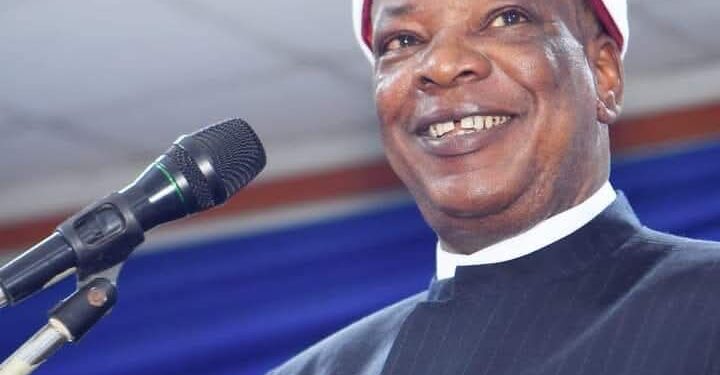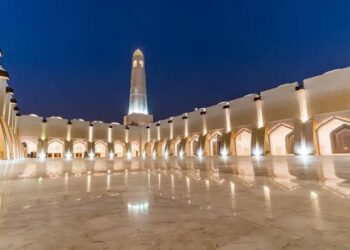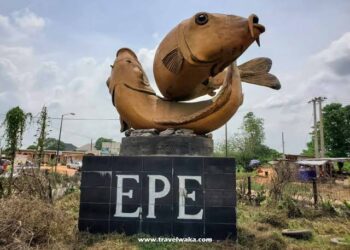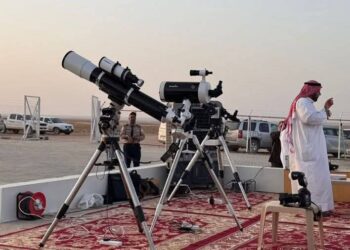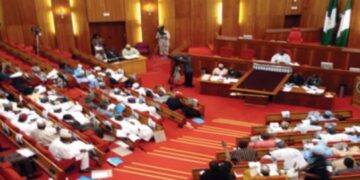
By Ibrahim Kegbegbe
For over a decade, Sheikh Habibullah Adam Al-Ilory (OON), the Mudir of Markaz, has gained recognition for his precise predictions of the beginning and end of Ramadan. His accuracy aligns with that of Saudi Arabia and other Islamic nations that determine the start of the holy month based on crescent sighting, as commanded by Prophet Muhammad (peace be upon him), who said:
“Fast when the crescent is sighted, and perform Eid when the crescent is sighted.” (Sahih Bukhari, Hadith 1909; Sahih Muslim, Hadith 1081)
In his 2025 prediction, Sheikh Habibullah has announced that Ramadan will begin on Saturday, March 1, based on astronomical calculations. He explained that advancements in science and technology now allow scholars with knowledge of astronomy to predict the sighting of the crescent with remarkable accuracy. According to his forecast, the crescent will be visible on Friday evening, February 28, marking the beginning of Ramadan the next day.
The Controversy Over Crescent Sighting in Nigeria
In Nigeria, the announcement of Ramadan’s commencement often leads to heated debates among Islamic scholars. Some believe that only the Sultan of Sokoto, as the leader of the Nigerian Muslim community, has the authority to declare the start and end of fasting. However, others, including scholars who align with Sheikh Habibullah, argue that anyone with verified knowledge of astronomy and Islamic jurisprudence can make such declarations.
This recurring dispute raises an important question: Can modern science and technology complement Islamic traditions, particularly in determining significant religious events?
The Islamic Stance on Knowledge and Scientific Advancement
Islam has always encouraged the pursuit of knowledge. The first revelation received by the Prophet Muhammad (peace be upon him) was:
“Read in the name of your Lord who created. He created man from a clot. Read, and your Lord is the Most Generous—who taught by the pen—taught man what he did not know.” (Qur’an 96:1-5)
This verse emphasizes that Allah grants knowledge to humanity, allowing them to discover and develop new sciences for the benefit of humankind. Scientific advancements in fields like astronomy, medicine, and engineering are all part of the divine wisdom bestowed upon people.
The Prophet (peace be upon him) also said:
“Seek knowledge, even if it is in China.” (Ibn Majah, Hadith 224)
This highlights the importance of knowledge acquisition, regardless of its origin. It suggests that beneficial knowledge—whether from religious or scientific sources—should be embraced for the betterment of society.
The Role of Science and Technology in Islamic Practices
Beyond crescent sighting, science and technology play crucial roles in many aspects of Islamic life:
1. Accurate Prayer Times – The development of astronomical calculations and mobile applications ensures precision in determining prayer times, fulfilling the Qur’anic command:
“Indeed, prayer has been prescribed for the believers at fixed times.” (Qur’an 4:103)
2. Hajj and Umrah Logistics – Advanced transportation, crowd management, and digital tools make pilgrimage more efficient, benefiting millions of Muslims annually.
3. Islamic Finance – Technological advancements have facilitated online banking, halal investment platforms, and Sharia-compliant financial services.
4. Medical Advancements – Islamic scholars support medical innovations, including organ transplants and halal-certified pharmaceuticals, to improve health outcomes.
5. Propagation of Islam (Da’wah) – The internet and social media have allowed the global spread of Islamic knowledge, with online lectures, digital Qur’ans, and educational platforms reaching millions.
Embracing Technology While Upholding Islamic Principles
It is essential to recognize that while science and technology provide convenience, they must be used in accordance with Islamic principles. The Prophet (peace be upon him) advised moderation and wisdom in adopting new methods. Technology should serve to strengthen faith, not replace the spiritual aspects of Islamic practices.
The debate over crescent sighting in Nigeria is not merely about authority but about how Islam adapts to modern knowledge. As long as scientific findings align with Islamic jurisprudence, they should be embraced as part of Allah’s wisdom granted to humanity.
Sheikh Habibullah Adam Al-Ilory’s accurate Ramadan predictions demonstrate that science and religion can coexist harmoniously. The use of astronomy for crescent sighting is a testament to how knowledge, when applied correctly, can enhance Islamic practices. As Muslims, embracing technological advancements should not be seen as a departure from tradition but as a fulfillment of the divine command to seek beneficial knowledge.
Just as the Prophet (peace be upon him) urged Muslims to learn and progress, today’s Islamic scholars and institutions should continue integrating science and technology into religious life, ensuring that faith and modernity work hand in hand for the benefit of the Ummah.

